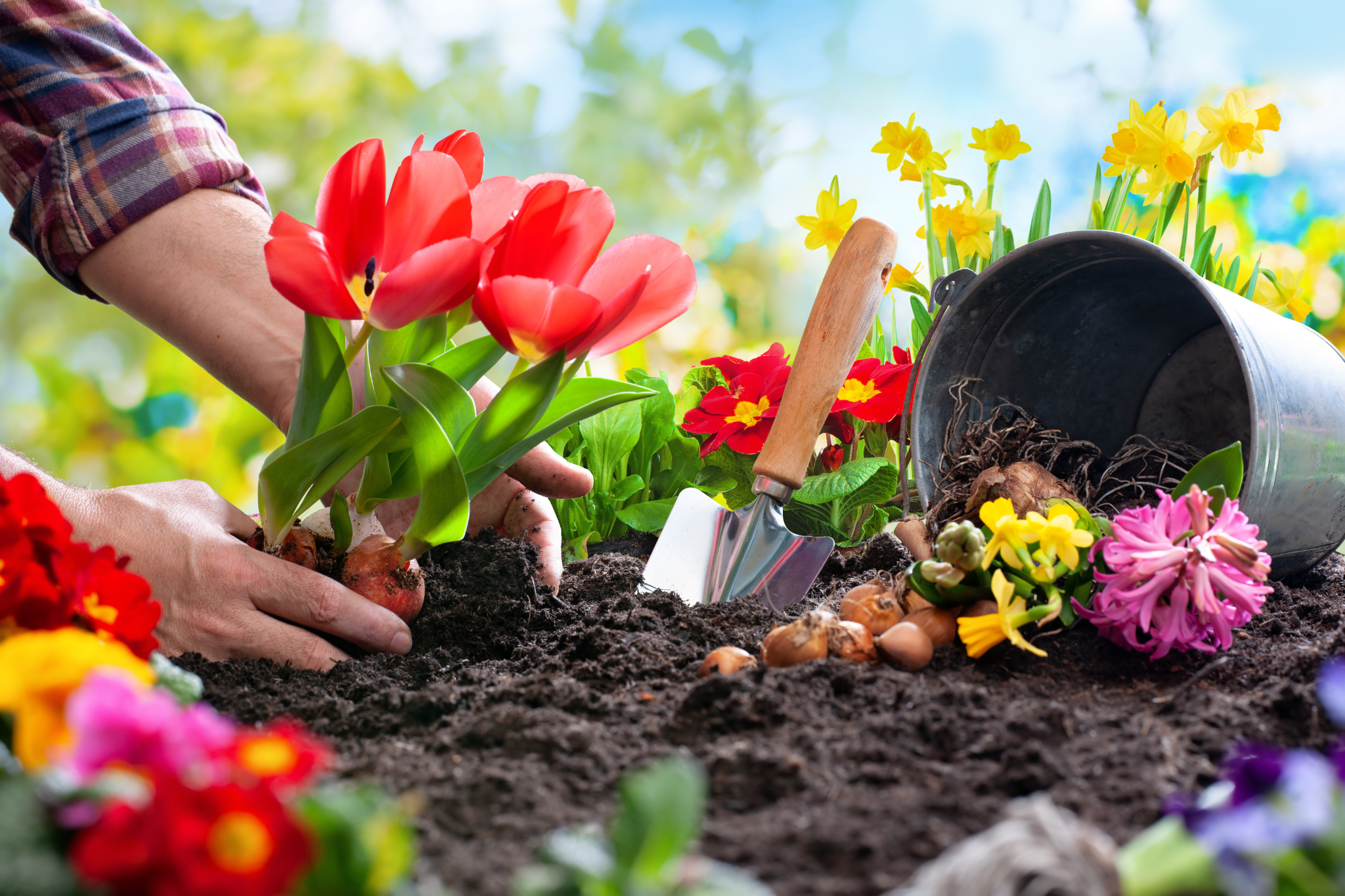Bulb gardening is often celebrated for its aesthetic appeal, transforming gardens into vibrant displays of colour and texture. However, the benefits of bulb gardening extend far beyond their visual allure. From supporting biodiversity to enhancing soil health, bulb gardens play a vital role in promoting environmental sustainability. Let’s explore the ecological advantages of incorporating bulb gardening into your green space.
Supporting Pollinators
One of the most significant environmental benefits of bulb gardening is its support for pollinators such as bees, butterflies, and hummingbirds. Many bulb flowers, like crocuses, tulips, and alliums, provide essential nectar and pollen sources for these creatures, especially in early spring when other flowers have yet to bloom.
Key Points:
- Early Food Source: Bulbs like snowdrops and crocuses bloom early, providing a critical food source for pollinators emerging from winter.
- Diverse Plant Selection: A variety of bulbs ensures a continuous supply of nectar and pollen throughout the growing season, supporting a wide range of pollinator species.
Enhancing Soil Health
Bulb plants contribute to soil health by improving its structure and nutrient content. The growth cycle of bulbs, which involves periods of active growth and dormancy, helps maintain soil vitality.
Key Points:
- Organic Matter: The natural decay of bulb foliage and roots adds organic matter to the soil, enhancing its fertility and structure.
- Soil Aeration: The growth and decay cycles of bulbs help aerate the soil, promoting better water infiltration and root penetration for other plants.
Water Conservation
Bulb plants are often more drought-tolerant compared to other garden plants, making them an excellent choice for water conservation. Once established, many bulb species require minimal watering, reducing the overall water usage in your garden.
Key Points:
- Deep Root Systems: Bulbs have deep root systems that can access water stored deeper in the soil, reducing the need for frequent irrigation.
- Efficient Water Use: During their dormant phase, bulbs use very little water, making them highly efficient in terms of water usage throughout the year.
Weed Suppression
Bulb gardens can help suppress weeds, reducing the need for chemical herbicides that can harm the environment. Dense bulb planting creates a natural ground cover that inhibits weed growth by blocking sunlight and occupying space.
Key Points:
- Natural Ground Cover: Bulbs like daffodils and tulips form dense clusters that prevent weed seeds from germinating.
- Reduced Chemical Use: By minimizing weed growth naturally, bulb gardens reduce the reliance on chemical herbicides, promoting a healthier ecosystem.
Promoting Biodiversity
Bulb gardens can enhance the biodiversity of your garden by providing habitat and food for a variety of organisms. The presence of different bulb species can attract a wide range of insects, birds, and small mammals, contributing to a balanced and vibrant ecosystem.
Key Points:
- Habitat Creation: The foliage and flowers of bulbs provide shelter and food for insects and small animals.
- Ecological Balance: A diverse bulb garden supports a range of species, promoting a balanced and resilient ecosystem.
Reducing Carbon Footprint
Bulb gardening can contribute to reducing your carbon footprint in several ways. The perennial nature of many bulb plants means they require less frequent replacement, reducing the need for transport and planting materials. Additionally, a well-maintained garden can absorb carbon dioxide, helping mitigate climate change.
Key Points:
- Perennial Growth: Many bulbs, such as daffodils and tulips, return year after year, reducing the need for new plants.
- Carbon Sequestration: Gardens, including bulb gardens, act as carbon sinks, absorbing CO2 from the atmosphere and helping to combat climate change.
Bulb gardening offers far more than just visual appeal. By supporting pollinators, enhancing soil health, conserving water, suppressing weeds, promoting biodiversity, and reducing carbon footprint, bulb gardens play a crucial role in creating a sustainable and eco-friendly environment. Whether you are an experienced gardener or a beginner, incorporating bulbs into your garden is a beautiful and impactful way to contribute to the health of our planet. Happy gardening!


Share:
A Beginner's Guide to Spring Bulb Planting: Tips and Tricks for a Bountiful Autumn
From Bulb to Bloom: Exploring the Fascinating Lifecycle of Flowering Bulbs